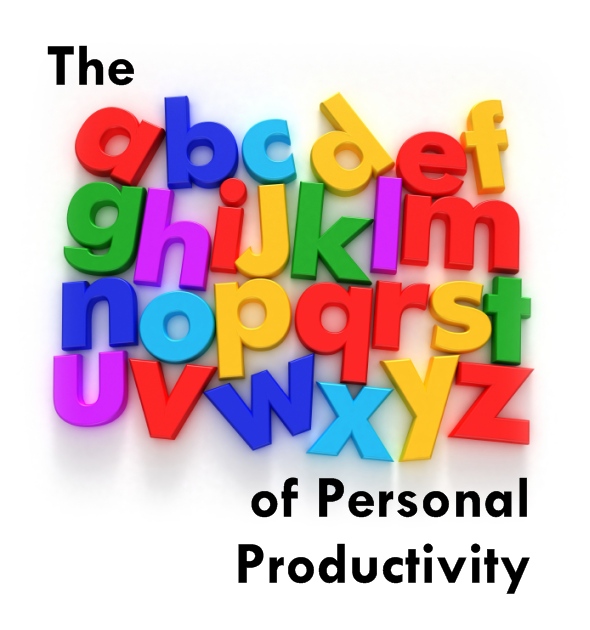I almost titled this “Increase productivity, happiness…” but then I remembered happiness is bullshit and one should chase contentment, so I re-titled it.
There are six million and five approaches to being more productive and more happy — entire sections of bookstores, people fly all over the world speaking about it, Oprah essentially became a billionaire by talking to others about it, etc. You can walk more. You can download some apps. You can eliminate “time sinks.” You can use personal analytics. You can “batch” tasks. You can be an Essentialist. There’s really no one “catch-all” answer to this stuff; you figure out what works for you and you roll with that.
Here’s an idea from Stewart Friedman, who teaches at Wharton. It’s interesting and logical, although perhaps his take on Harvard Business Review does link to his books a couple of times. But hey, we’re all game for a little self-promotion, right? (Especially if the ideas have value.)
Alright, so … here’s the HBR article. Let’s break this down.
Friedman believes there are four essential domains to life:
- Work
- Home
- Community
- Self
So far this is all logical. You could maybe quibble with the wording (“family” as opposed to “home”), but I think everyone understands this framework.
A ‘Four-Way Win’ is when you integrate the areas to an extent, and then make a tweak that essentially benefits all of them. Simple in thought, right? Harder in execution. (Here’s another Friedman article on designing Four-Way Win experiments.)
In 2005, Friedman’s team analyzed 300 business professionals and the results are within this graph:
So the basic result, then, is like this:
- Think of the four areas
- Align your actions and your values with those four areas in mind
- As a result, you’ll likely think less about work and see increased satisfaction and performance in all areas
Cool, right? The concern is that this was based on 300 individuals, and done in 2005. 300 people is a relatively small sample size and 2005 was pre-crash; attitudes about work post-crash are a little different, because I’d argue more people are worried about their performance and not losing their job, especially if they’re close to retirement. Even though it’s extraordinarily hard to fire people in America (as one example), people always seem to use that fear and put more of their life into work — and less into what should matter, i.e. family, community, and self.
Friedman himself lists the barriers to seeking Four-Way Wins as fear, ignorance, and guilt. That’s a good list, if terrifying. I’d honestly also add “human nature.” People come up with one set of beliefs (likely from their parents/primary caregivers), and those beliefs adjust because of their friends and experiences. Thing is, a lot of your friends tend to be clustered socioeconomically, and your experiences could be broad — but might not be — and that’s why there’s this fear that maybe we’re all entering a “filter bubble” (or “algorithm bubble”). I think it takes a long time for people to change their belief about what they need to be doing at work — people tend to put a lot of emphasis there, which is why you end up seeing couples adopt “no screen” policies at night or whatever. Couples shouldn’t have to do that; the reason it happens is because work becomes a priority relative to family, community, and self. This happens often, especially in the middle class.
If you take the Friedman work on face, then all you’re trying to do is align the four areas. You don’t necessarily have to prioritize work less; you just need to bring it into a context with the other three areas. Here’s how Friedman himself summarizes:
Barriers to creating meaningful changes in where you focus your attention — your most precious resource — are real, and there are ways to surmount them. Take action that’s within your control and that you believe will benefit the people who matter most to you in all the different parts of your life, gather data on your impact, and continually adjust so you’re increasingly able to do what’s good for you and for them. Your mindset will shift as you start to see more opportunities for realistic four-way wins. You just have to look for them, as a leader, in all parts of your life, by doing the basics: Envision a better future and bring others along with you.
The last line is awesome: Envision a better future and bring others along with you.
Shouldn’t we all be chasing that?
This requires work on your part: figure out what you want to focus on, how you want to track it, how you want to evaluate it, etc. You need to do that and, in the process, take time away from answering e-mails from stakeholders and the like. It’s challenging. But if you even remotely believe those satisfaction/performance numbers, why not try?


Reblogged this on Gr8fullsoul.